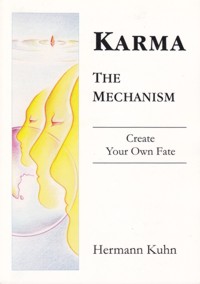Chapter 6 of Tattvarthasutra
Most people experience life as constant alternation between action and reaction. We initiate action and the rest of the universe (including our own body and our own consciousness) reacts to this stimulus. Often the outside world introduces facts and problems and thereby triggers our responses.
This concept of action and reaction appears sensible. It gives us an idea how to manage - more or less successfully - the challenges of daily life. The more we experience - i.e. the more we know how the universe reacts to our action - the better, wiser and the more effective we should be able to conduct our life.
Yet there's a catch: Almost all our action seems to contain incalculable factors which at any time may influence, change or imperil its course. Especially long term projects have the annoying tendency to become unpredictable and even the most meticulous planning or the availability of unlimited funds and resources will not ensure success. In the end many things look entirely different from our original intent or expectation. That things turn out as planned and give us the desired satisfaction often appears more the exception than the rule.
Something seems to escape all our planning, all our calculation, - something that definitely influences everything we do and that affects all the results of our actions.
Strangely this - 'something' - which exerts central power on our life - never attracted much systematic attention of the Western sciences. So far only psychology tried to locate our actions' basic mechanisms and its propelling forces in more subtle fields than the purely material. Yet the almost 100 years of research in this direction have not produced much of a new, systematic approach to more effective conduct. Though psychology's theories may sound logical in parts, most people intuitively reject the idea of being governed by an inaccessible sub-conscience - whose hidden features may have entered there only in a dark and highly obscure way.
Yet there exists - in the Eastern part of our world - an ancient concept that not only explains the fundamental inner mechanisms of action, but gives us tangible information how to unfold a vast, unused potential inherent within us. It further describes extraordinary dimensions which human endeavor hardly ever attempted to venture into. This concept is called 'Karma'.
Now, - apart from the obvious misconceptions about this term that have been dealt with in The Mystery, - most people picture karma as a rather abstract function of their life. We tend to regard karma as something foreign, as some separate and alien component we feel only a distant and rather fuzzy link to.
Yet there is nothing abstract, foreign or vague about karma. We find its expressions and effects right in our everyday existence. Karma is nothing other than our very emotional attachment to the 'themes' or features of our life we feel - positively or negatively - attracted to. Karma is essentially the material carrier of our desire to physically experience this world.
There is a fundamental difference between our consciousness and karma. Consciousness - that what is alive within us - is independent of any physical carrier. Karma on the other hand is a kind of subtle matter that surrounds our consciousness in a similar way as our body surrounds it with physical matter. When these two components - consciousness and karma - mix together, we experience life as we know it at present. Yet as long as we remain unaware of the mechanisms that govern the interactions of these two components, we will experience that our actions often produce unexpected or undesired results.
We do have the ability and power to control all interaction between karma and consciousness. Once we become aware of their mechanisms, we can easily stop the erratic results the random mixing of these two components often generates. We then gain access to far more efficient ways of using our awareness, far greater freedom of action and growing insight into the real functioning of our life.
Sutra 1 to 9 explain how we attract karmic matter to our consciousness. Sutra 10 to 27 illustrates with a number of concise examples how our consciousness and karmic matter interact with each other.
 Hermann Kuhn
Hermann Kuhn
